
After weeks of pushing and ensuring we were not “too late” to get over the high passes, we are finally here in Pakistan. All the high passes are behind us. We are still over 2,500 meters, but from here, it’s only downhill—at least on average. Hunza Valley, the northernmost mountain valley of Pakistan, is a small paradise where food grows abundantly in people’s gardens, and clean drinking water flows for free from the towering, beautiful mountains. The people are well-educated, surprisingly modern, and take great care of their environment. It is very clean and safe, and some say it’s not “really” Pakistan. The autumn colors are stunning, adding an extra magical touch to an already special place. With every yellow or red tree, we feel so much gratitude for being “so late.”
For us, Hunza Valley is also special for another reason. Back in Europe, Thomas found a couple making titanium rings with mountain engravings, and we got two with the Passu Peaks—a famous mountain range here in Hunza—engraved. Standing now—months later—at this very place we had dreamed of for so long felt like a dream come true. We didn’t buy those rings to get married—just to pretend to be married in certain countries—but if we had, being here would feel a bit like the corresponding honeymoon.
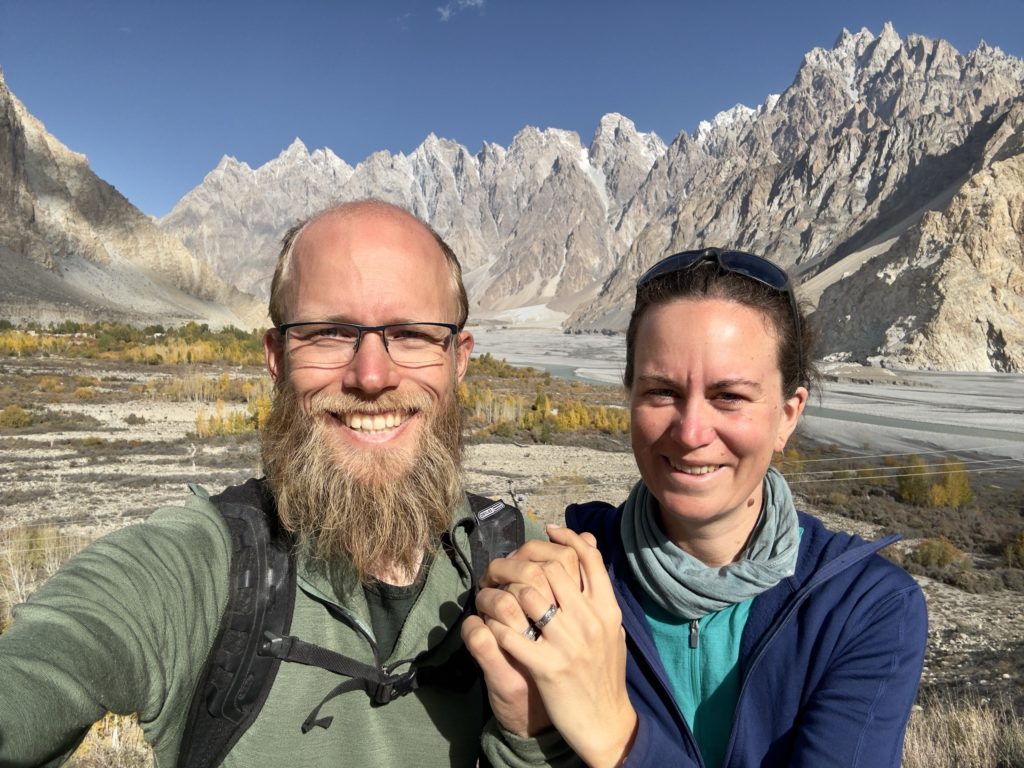
There was no goal to reach, no pass to cross, and no place to get to (except home, eventually). We suddenly had time. And we took our time. By the time we realized our cash was running low, with only about 12,000 PKR (~40 Euros) left to get through, we had just 58 km to the next ATM—easy! But it took us five days… First, we planned to stay in Gulmit, 16 km further—42 km to go—for two more nights until the wind calmed and the sky cleared. We ended up in the fanciest place in Gulmit, the Silk Road Lodge, which accepted cards. We enjoyed the lovely spot and its great hosts before they closed for the season, paying half the price listed on Booking.com.
Riding on, we once again didn’t make it to the next ATM in a day; the landscape was too beautiful to rush. Just 10 km before, we stopped again. This time, we stayed at the fanciest place in town. (To be fair, there were many cheaper options that accepted cards here in Karimabad, but still…) This time, the hotel wanted nearly double the price listed on Booking.com, so we had to book the room on Booking.com while sitting in their lobby. At least we could use their Wi-Fi, as our eSIMs weren’t working up here in Hunza.
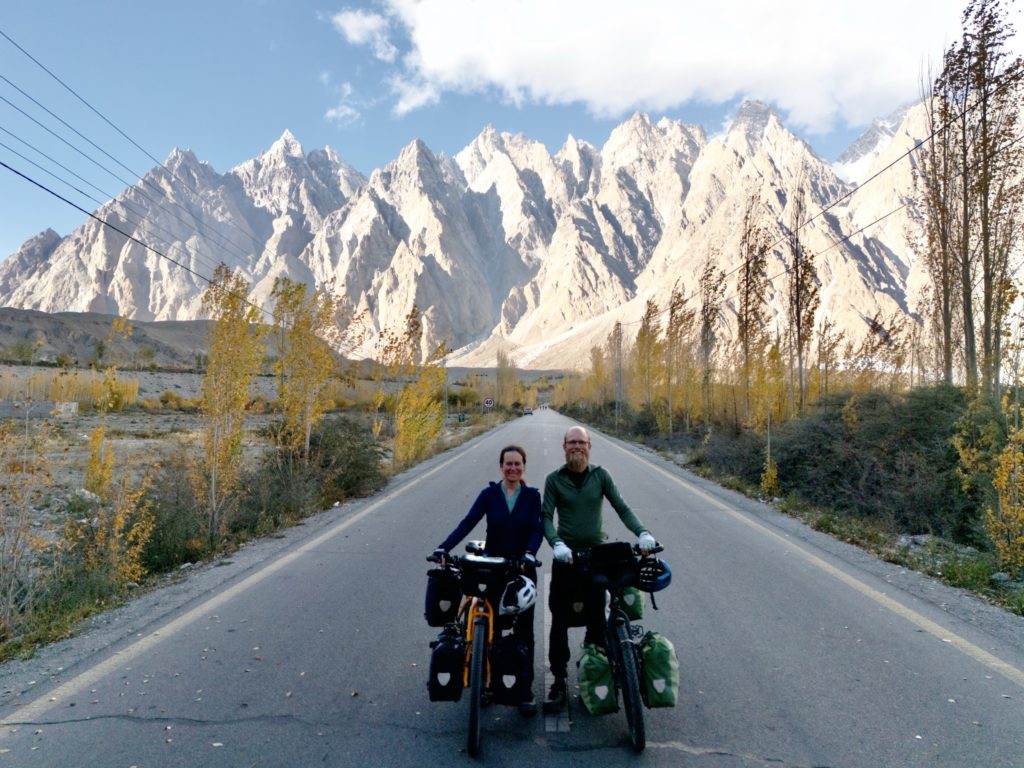
What a place! After passing their security—a gate with guards, a road angled to block uninvited vehicles, two metal detectors, and two luggage scanners—we entered a completely different world. From a simple room with mattresses on the floor and frequent power cuts, we stepped into a shiny haven with live music in the lobby, fresh orange juice before we even reached the reception, a bellboy transporting our luggage the 20 meters from the lobby to our room (tagging every single bag, though they were all on one cart), and a view. What a view!
Finally, we spent our last 1,500 PKR (5 Euros) on entry to the castle in Karimabad. It was time to leave paradise and head to the ATM—and then further down to “real” Pakistan.
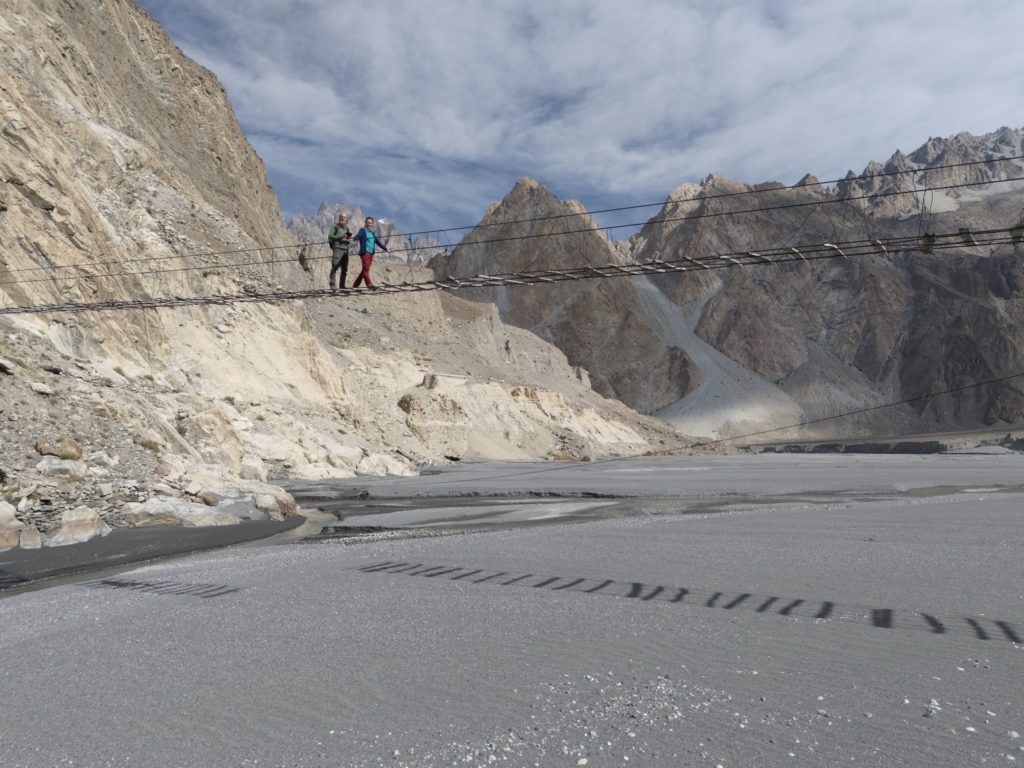
Anecdotes
Sost—the border town with China: There are no women in this town. It’s a very busy place with many people—that is, many men. Two female Chinese tourists, another woman in our hotel, and one Pakistani woman sitting with some men in front of their trucks. That’s it. At least this time, I didn’t have to think about how I should or shouldn’t adapt my clothing. It was cold, so I was already covered and shapeless in my oversized fluffy green jacket.
Before leaving, we had breakfast at the hotel: Pakistani omelette with paratha, spiced and loaded with veggies! What a treat after a month in Tajikistan, where breakfast every day consisted of two fried eggs (or cold boiled eggs) with bread of okay to bad quality. It was also the first time that “chai” automatically came with milk. Then, Thomas spotted the “French toast” on the menu and couldn’t resist. They first had to go to the shop to get the toast bread, but then we were treated to amazing French toast.
Road: But the biggest difference for us here was that (some) people spoke (some) English! In China, people rarely interacted with us (except for taking unsolicited pictures). Before that, people tried to engage, but we usually couldn’t get beyond “Shveytsariya” due to our lack of Russian. But here, it was different: people approached us with their more—or (mostly) less—fluent English, asked for pictures with us, and there was usually someone who could translate when we needed help.

Gilgit: On our way from the hotel to a stone Buddha carved into a rock, my tire was flat again. Really flat—I couldn’t keep going, let alone ride the 7 km back to the hotel. Neither of us knew if it would be possible or feel safe to catch a ride back, and without mobile network connection in Gilgit, once we separated, we wouldn’t be able to communicate.
After some back and forth, we decided that Thomas should continue the last 3 km to see the Buddha while I started walking back. If I got a ride and felt good about it, we’d meet at the hotel; otherwise—and most likely—Thomas would catch up with me soon enough.

At first, I struggled—Why again? How did I not even notice?—but then I eased into my fate and tried to enjoy the walk. I got a lot of attention but no car that could give me a ride, and the buses were far too full. Before reaching the city center, I passed several car and bike repair shops. With little hope, I approached the first mechanic who smiled at me. Even without a shared language, he immediately understood what I needed and enthusiastically grabbed an air pressure device. I shook my head—I have a bicycle valve. No problem! He led me from shop to shop until he found a bicycle pump. After I showed him how to use it (he wouldn’t let go of the pump), he quickly filled my tire. Grateful and happy, I continued through the busy streets, deciding not to wait for Thomas but instead cover as much distance as possible before losing my precious air again.
Meanwhile, Thomas hurried after me, somewhat surprised not to catch up with me. Of course, it was exactly then that he—finally catching a bit of network—received my mother’s first and only worried message because she hadn’t heard from me in a while. It was the only time in months when Thomas didn’t actually know where I was or if I was safe.
Fun fact: The next morning, I wanted to fix my tire before leaving. But, believe it or not, it still had all the air.





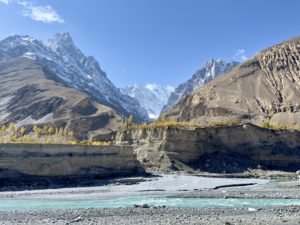

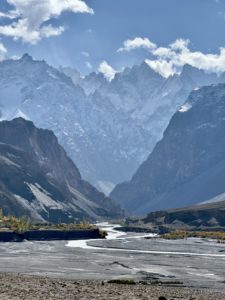

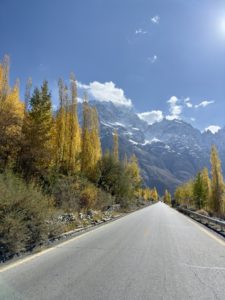

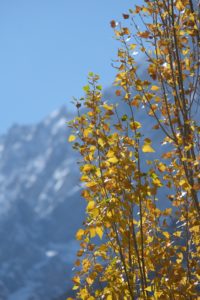
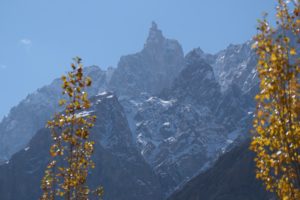
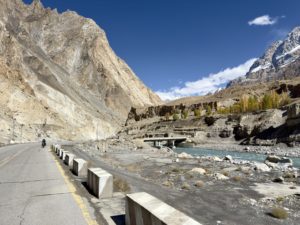
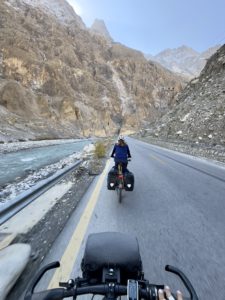

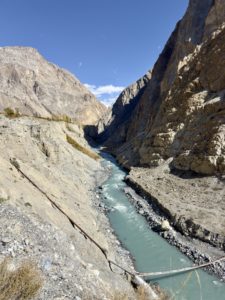
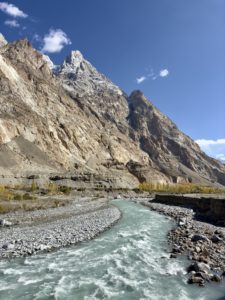
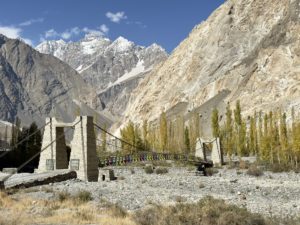
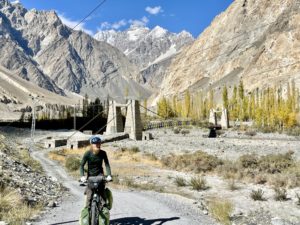

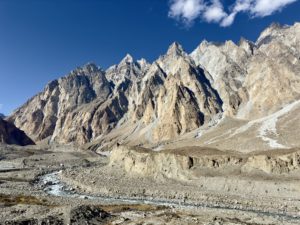
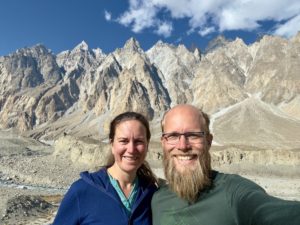
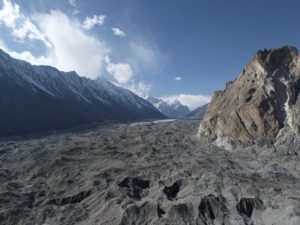

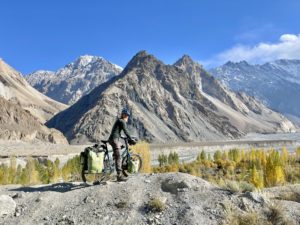
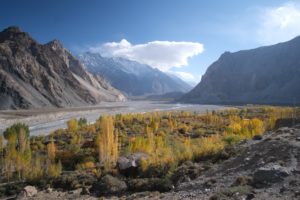

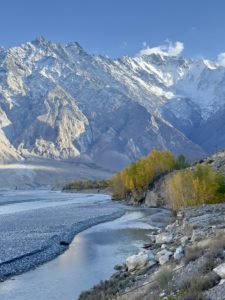
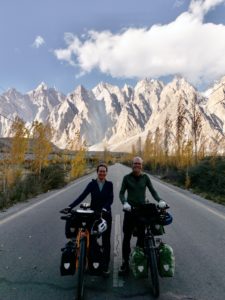



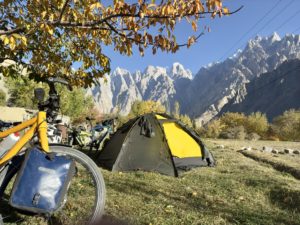
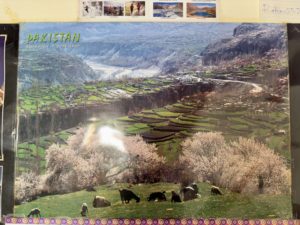

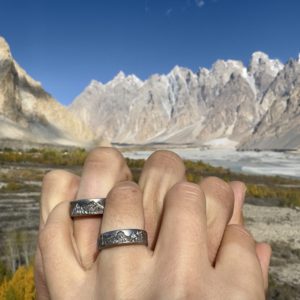
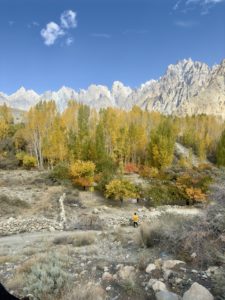

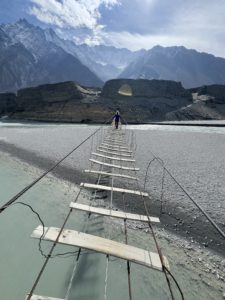





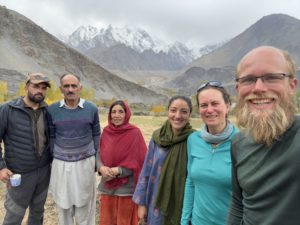
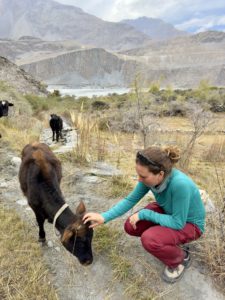
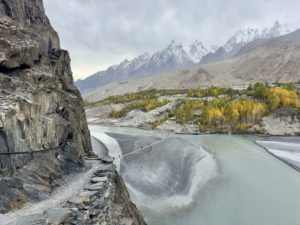
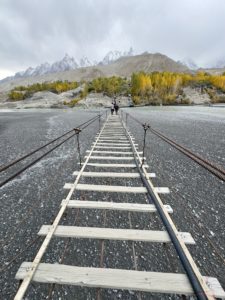





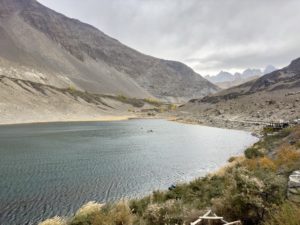

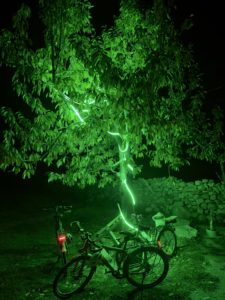


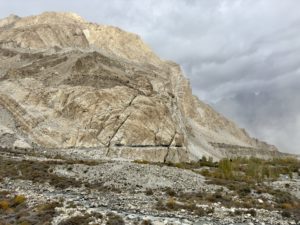
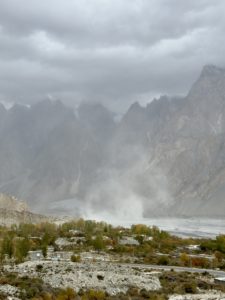

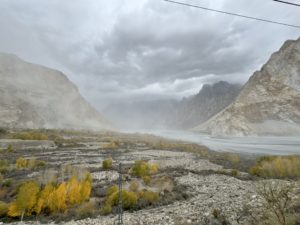
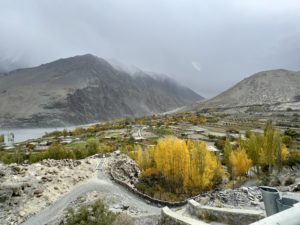


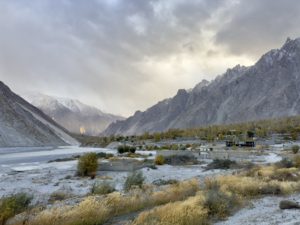

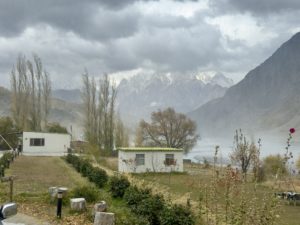

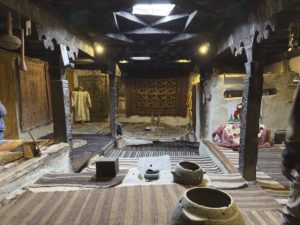

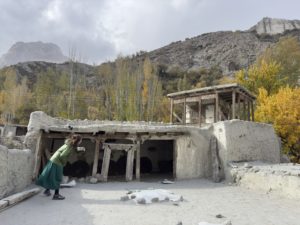


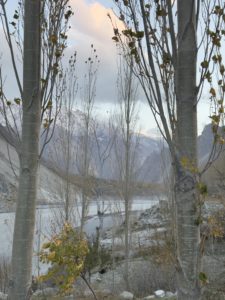
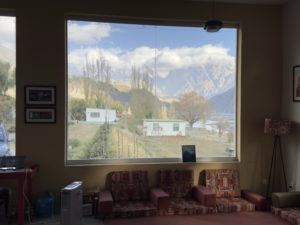



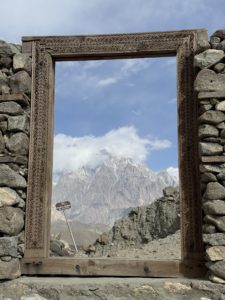

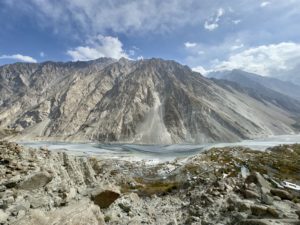
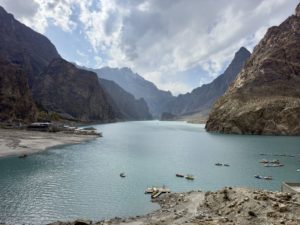
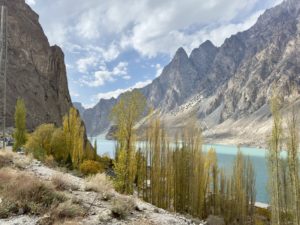

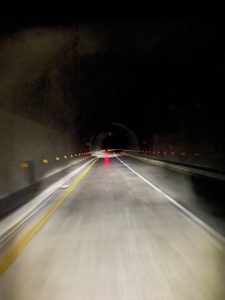
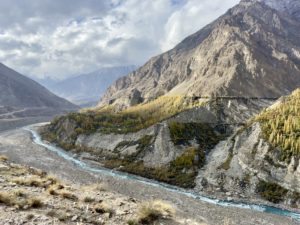
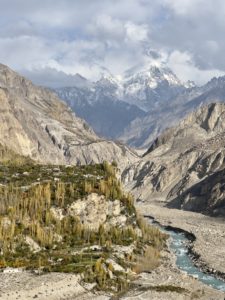
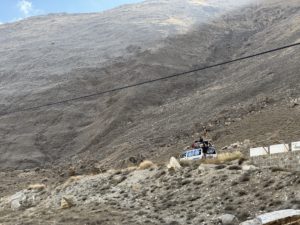








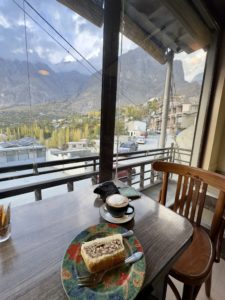
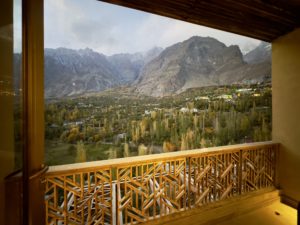
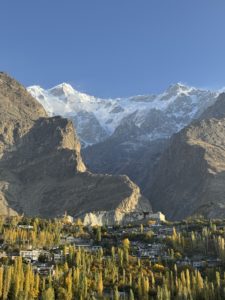


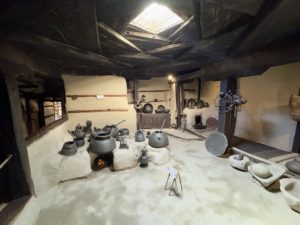
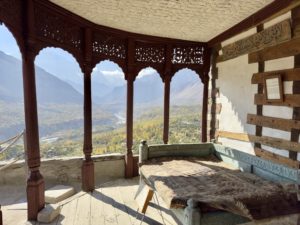

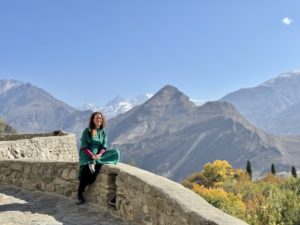

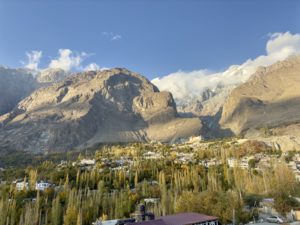
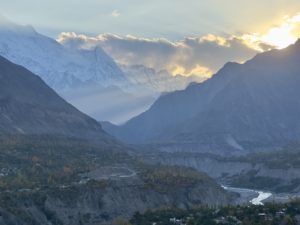
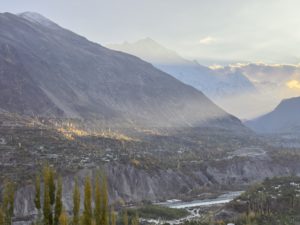

Leave a Reply